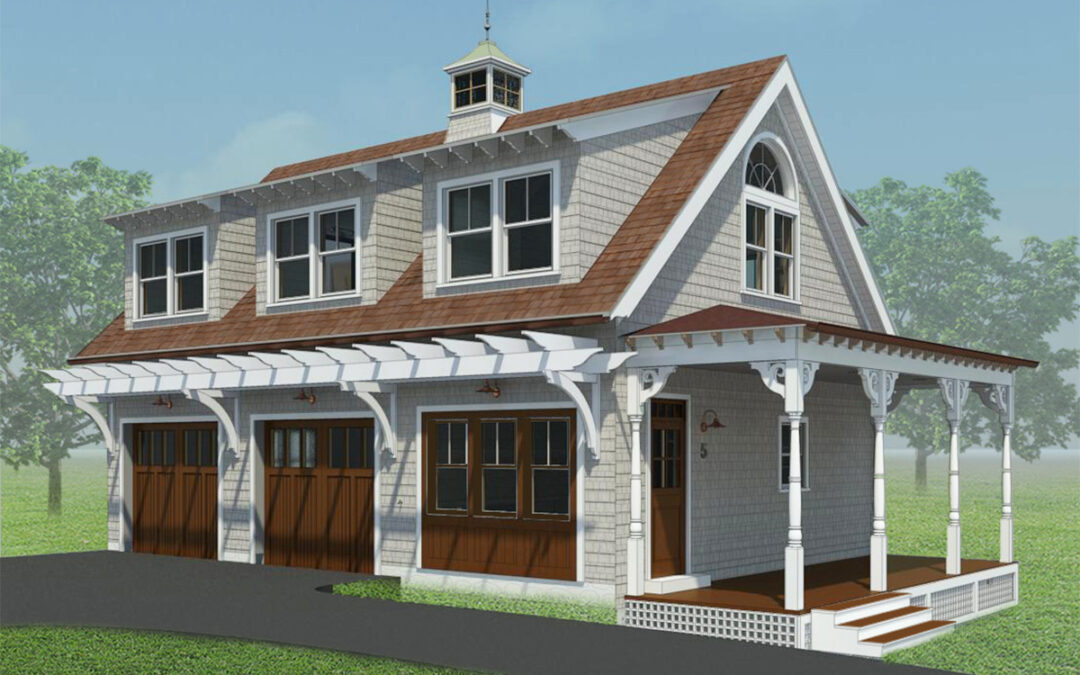Carriage House Render (Newport, RI)
As part of our ongoing study of the Affordable Housing shortage in Rhode Island, we will examine the current status of Accessory Dwelling Units (ADUs) within the state. ADUs, also known as “granny flats” or in-law apartments, are gaining traction as a potential solution to Rhode Island’s ongoing housing shortage, although the state’s journey towards ADU legislation has been one of gradual progress, marked by intermittent setbacks, on the way towards wider adoption.
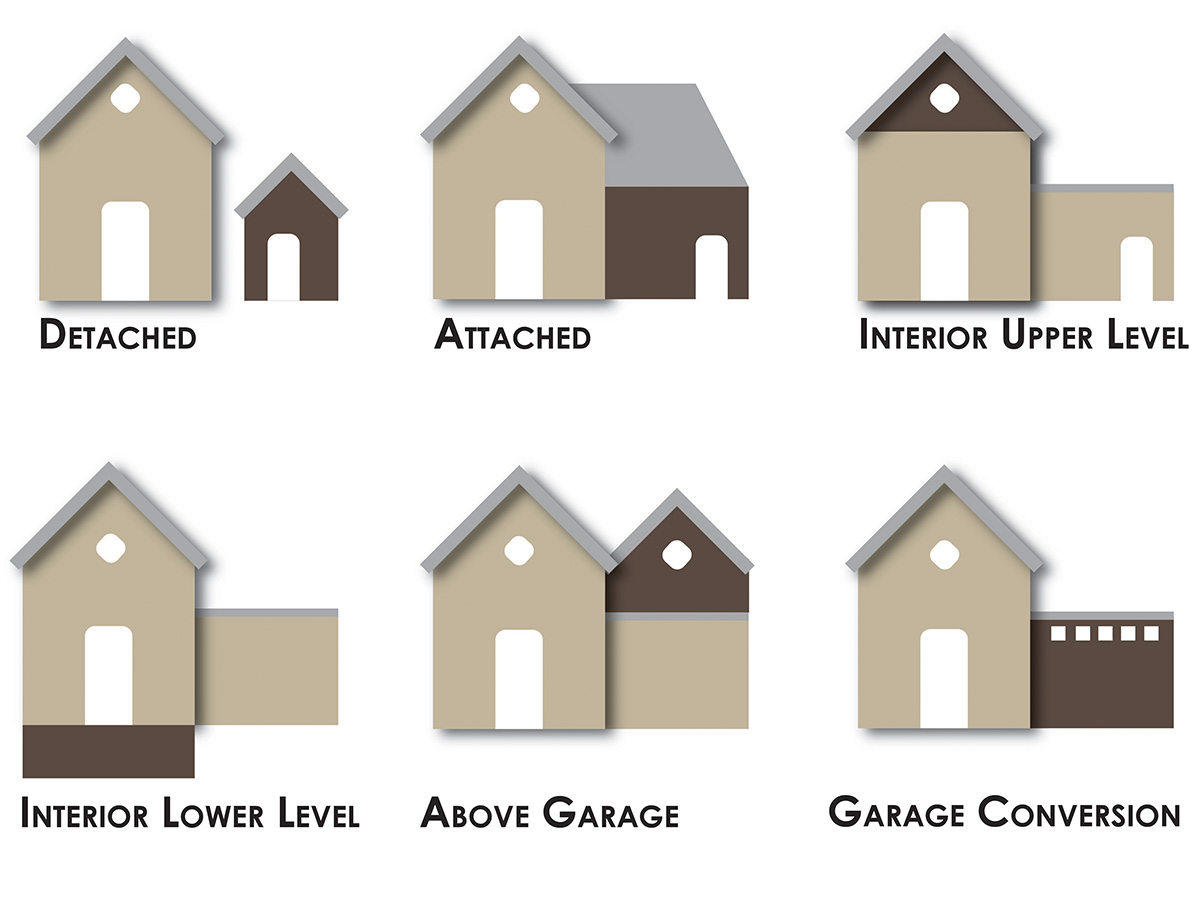
Types of ADU’s
The concept of ADUs isn’t new in Rhode Island. Following the devastating 1938 hurricane, many units were divided up to accommodate those housing whose units were destroyed. The fact that the country was in the midst of the Great Depression and there were essentially no zoning regulations further facilitated the break-up of larger houses into apartments and ADUs. For the early part of the twentieth century, ADUs remained largely unregulated and were common throughout the following decades, particularly in cities where large houses were available to be divided up.
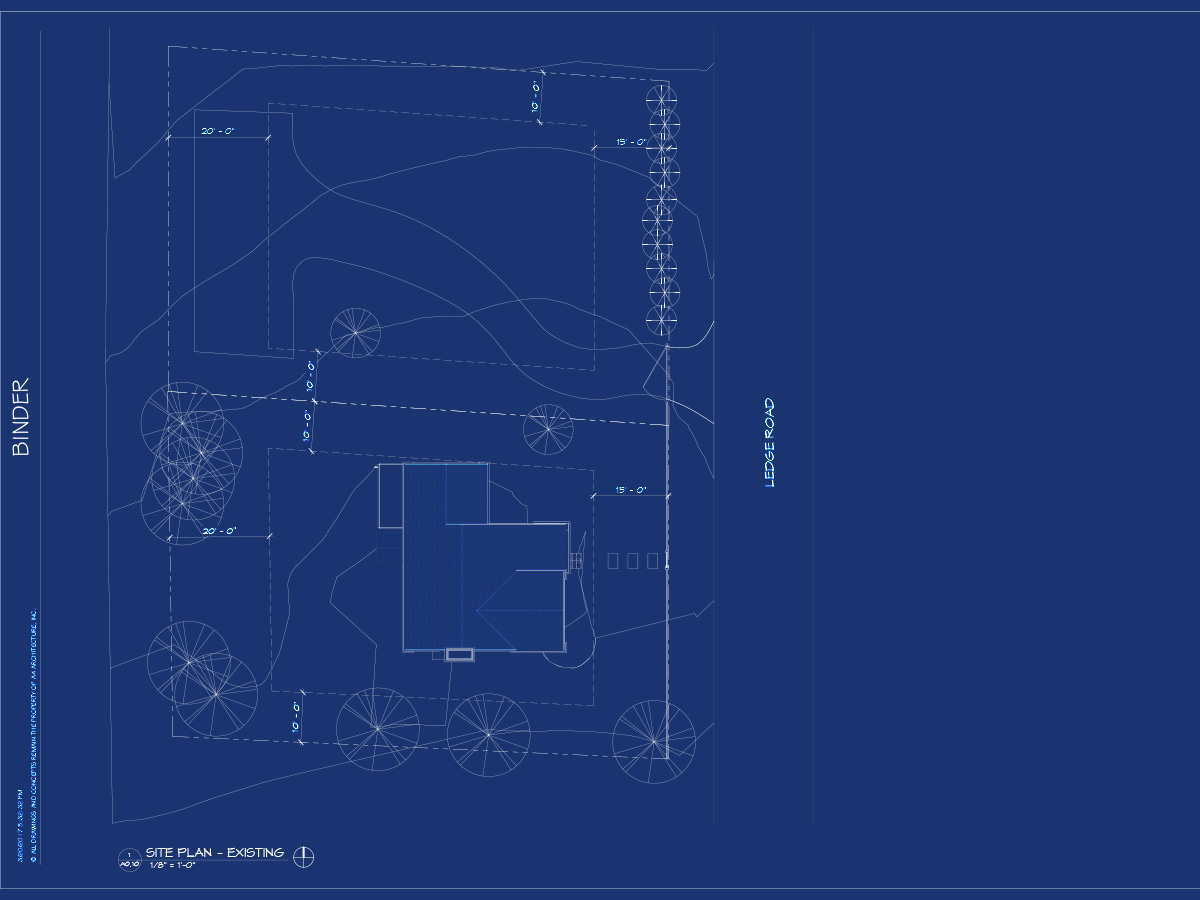
Existing Site Plan, Newport, RI
In the Post-war years, especially since the 1970’s, there was a resurgence in the economic prospects of the state and communities like Newport. Furthermore, zoning regulations were written and began to be enforced and so the presence of these small ADU’s in buildings continually diminished as houses were upgraded and underwent renovation. Since new ADUs were prohibited, the number of ADUs in general, particularly in rising real estate markets like Newport, constantly decreased until they became anachronistic and relatively rare.
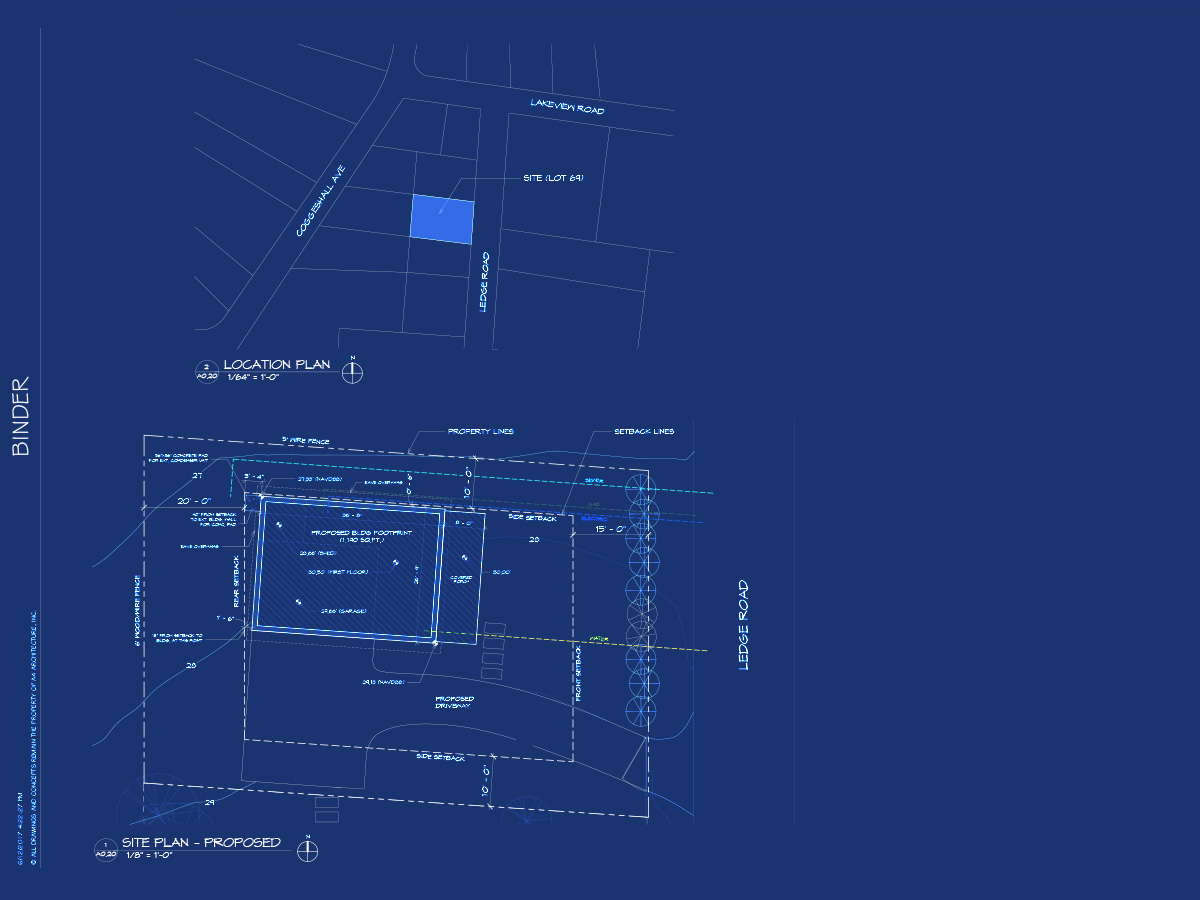
Proposed Site Plan, Newport, RI
In 2012, Rhode Island became the first state in the nation to officially embrace strategic retreat as a climate adaptation strategy. This included acknowledging the role of ADUs in providing relocation options for vulnerable communities and fostering a more diverse housing landscape. The 2018 “Resilient Rhody” plan solidified this commitment, allocating funding for ADU development and relocation assistance. However, implementing ADUs on a wider scale has faced challenges. Local zoning regulations often lacked clear guidelines, created uncertainty for homeowners and hindered potential ADU development. Communities are often at odds with one another as some residents want their children to be able to stay in the communities but other home owners are afraid that higher density of units will lead to lower property values.
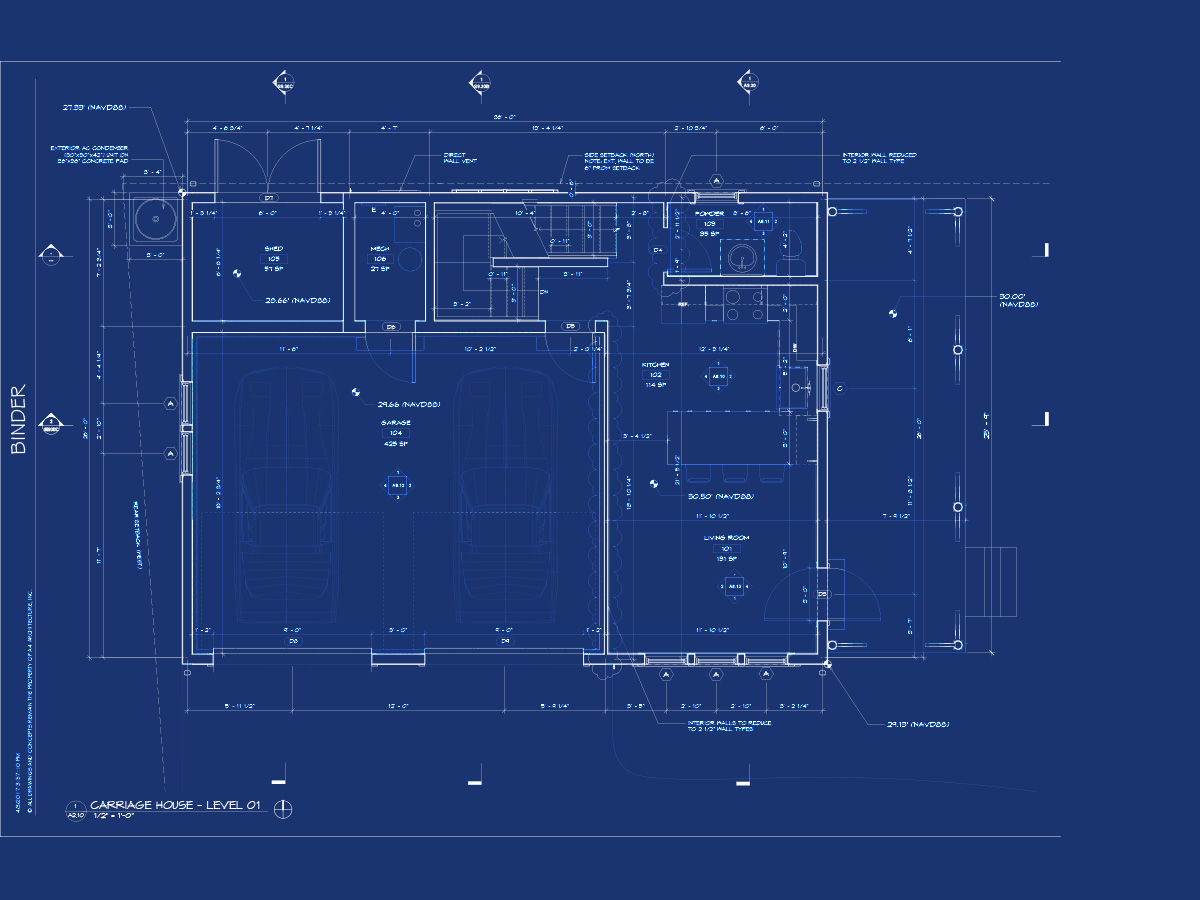
First Floor Plan, Newport, RI
In January of 2024, there was significant progress with the introduction of RI House Bill 7062. This legislation aims to streamline ADU development by establishing statewide standards and granting homeowners the right to develop an ADU within their existing footprint or on larger lots. While the bill awaits Senate approval, it represents a critical step towards wider ADU adoption. Just this past week the legislation passed the Rhode Island House 55 to 9 (with 11 Abstentions) including Newport county representatives Lauren Carson and Terri Cortvriend and so the legislation moves on to the Senate for review and passage.
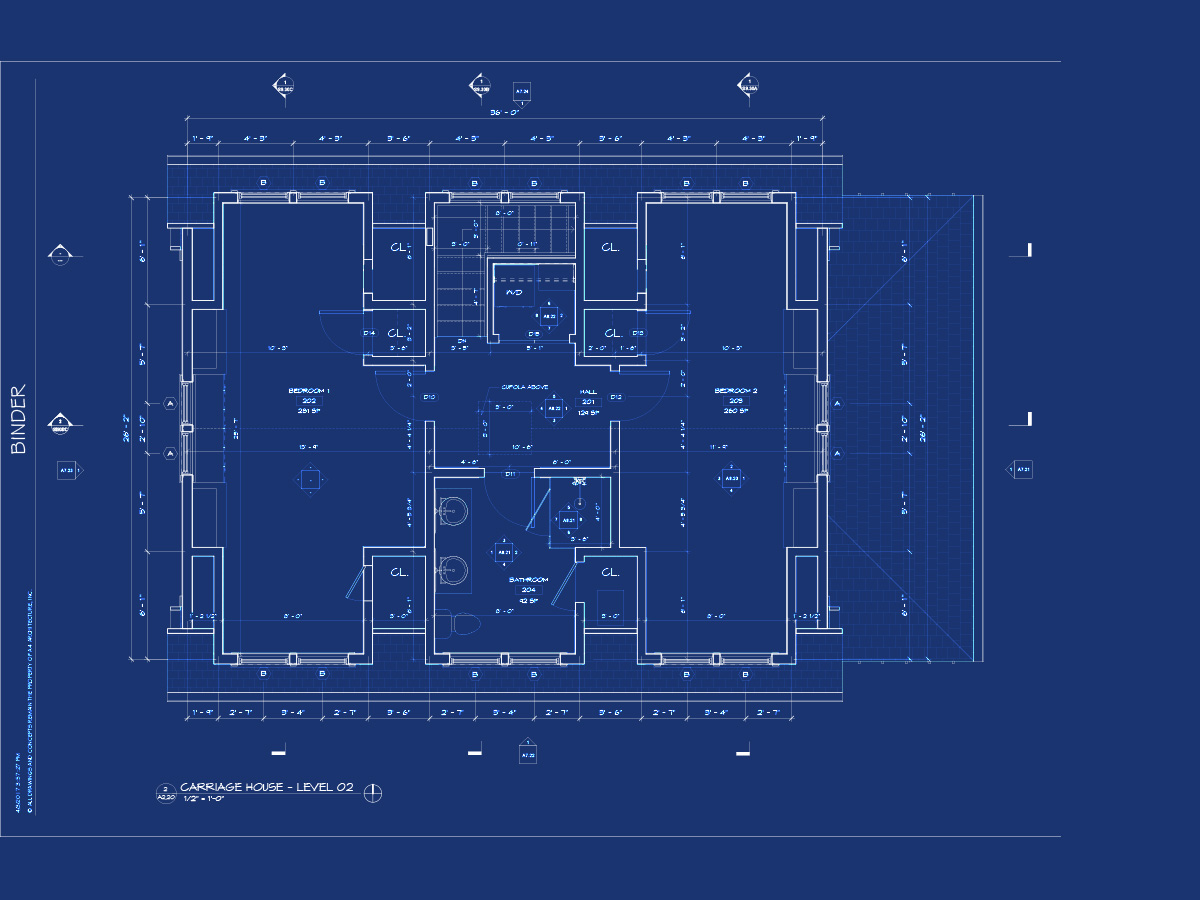
Second Floor Plan, Newport, RI
Despite this recent progress, many challenges to the creation of ADUs in Rhode Island communities remain. Public education and outreach are crucial to address concerns about potential impacts on neighborhoods and ensure responsible development. Additionally, navigating financing options and streamlining permitting processes remain areas needing improvement.
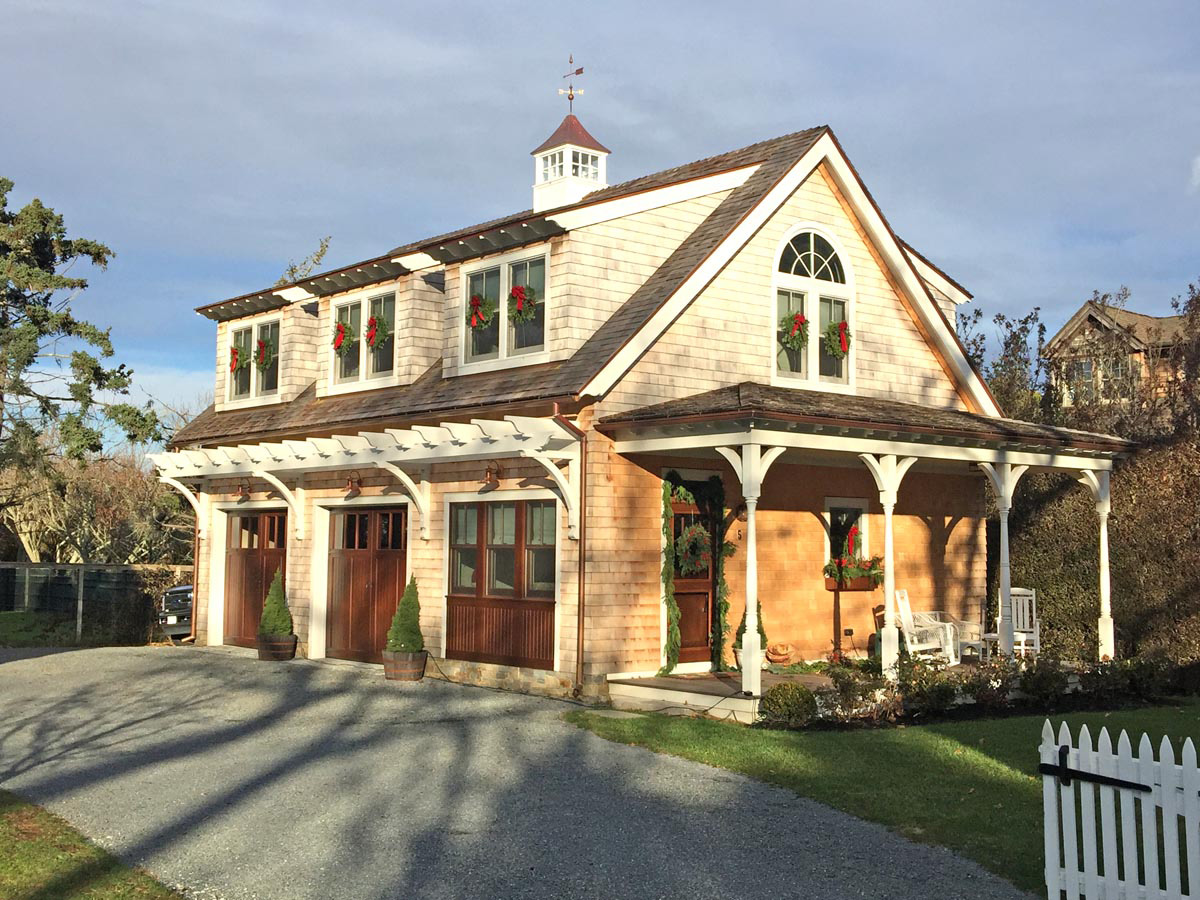
Exterior Photo, Newport, RI
Rhode Island’s ADU journey, though marked by initial hesitation and very slow gradual progress, showcases a growing commitment to exploring innovative solutions for its housing crisis. With continued efforts to address regulatory hurdles, raise awareness, and explore financing options, ADUs have the potential to become a valuable tool in creating a more diverse, resilient, and affordable housing landscape for Rhode Island. Nevertheless, in the face of a severe shortage of housing in Rhode Island and especially in resort communities like Newport, the creation of Accessory Dwelling Units offers one of the fastest routes to the creation of small living units that can help younger people and service workers find a way to live in these communities.
Looking to remodel your home? Let’s connect.
Join the Architectural Forum to stay up-to-date with architectural news from Rhode Island and abroad.
Ross Cann, RA, AIA, LEED AP, is an author, historian, teacher and practicing architect living and working in Newport, RI. He holds degrees in Architecture and Architectural History from Yale, Cambridge, and Columbia Universities. He is a Leadership in Energy and Environmental Design Accredited Professional.
At A4 Architecture + Planning we are expert at integrating building codes into our designs to provide safer and more long-lasting building solutions for our clients. If you are interested in learning more about what can do for you reach out to us at any time!
